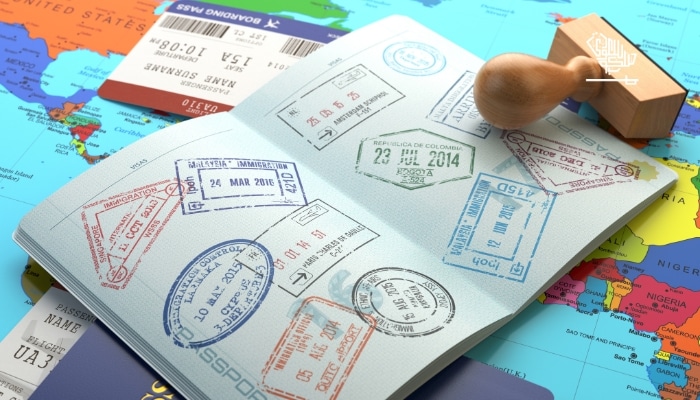Saudi Arabia, known for its strict regulations and laws, imposes significant fines and penalties for overstaying a family visit visa. If a family visit visa expires, the visitor and their sponsor must navigate a detailed process to handle the consequences.
This article outlines the fines for an expired family visit visa in Saudi Arabia and the necessary steps to resolve the situation.
Fine for Expiry Visa
In Saudi Arabia, failure to extend a family visit visa within three days of its expiry results in hefty fines. These fines escalate with repeated offenses, reflecting the kingdom’s strict immigration policies.
Visit Visa Expiry Fine
The fines for overstaying a family visit visa in Saudi Arabia are as follows:
- During the coronavirus pandemic: SR 400.
- 1st Time Overstay: SR 15,000 fine plus deportation.
- 2nd Time Overstay: SR 25,000 fine plus deportation.
- 3rd Time Overstay: SR 50,000 fine plus deportation and six months in jail.
In case of a medical emergency, these fines can be waived if proper evidence is provided.
What to Do If a Family Visit Visa Expires?
If a family visit visa expires, the visa holder must pay the fine and undergo deportation procedures. The steps to address this situation are detailed below.
How to Pay the Visit Visa Expiry Fine?
To pay the fine for an expired family visit visa, you must gather the following documents:
1. Original Passport of the Visit Visa Holder: This is required for identification and processing.
2. Original Iqama of the Sponsor: The sponsor’s identification document is necessary to link the visitor to their host.
3. Jawazat Form: This form must be filled out accurately. Assistance from agents outside Jawazat offices can be sought.
4. Passport Size Photograph of the Visit Visa Holder: A recent photograph is needed for documentation purposes.
5. Letter from the Doctor (in Case of Medical Emergencies): This letter should detail the medical emergency, which might help in waiving the fine.
Visit Jawazat
The first step is to visit the Jawazat office, which handles family affairs. Follow these steps:
- Get the Form Filled: Agents outside Jawazat offices can help fill out the form correctly.
- Submit the Form: Once filled, submit the form to the Jawazat officer. The officer will review the application and write “Tarheel” on it, indicating the need to visit the deportation center.
Visit the Deportation Center
After visiting the Jawazat office, proceed to the deportation center with the visit visa holder. Here’s what happens:
- Fingerprinting: The deportation center will take the fingerprints of the individual who overstayed.
- Passport Stamping: The passport of the overstaying visitor will be stamped.
Once these steps are completed, return to the Jawazat office where the officer will impose a fine or penalty for the expired family visit visa.
Payment and Visa Extension
- Medical Emergencies: If you have evidence of a medical emergency, no fine will be imposed.
- Request for Reduction: On simple requests, fines can sometimes be reduced to SR 500 or SR 1,000.
- Visa Extension: After paying the fine, the visa can be extended for an additional 3 to 7 days. Ensure that the visit visa holder leaves Saudi Arabia within this extended period.
Working on a Family Visit Visa
It is strictly prohibited to work on a family visit visa in Saudi Arabia. Violating this rule results in severe penalties for all involved parties:
- Visa Holder: Heavy fine and deportation.
- Sponsor (Iqama Holder): Heavy fine.
- Employer: Heavy fine.
Staying Informed
Join relevant WhatsApp groups or Telegram channels for the latest updates on family visit visas and other immigration rules in Saudi Arabia. Staying informed ensures that you are aware of any changes in regulations and can take timely action to avoid penalties.
By adhering to these guidelines, visitors and their sponsors can navigate the complexities of expired family visit visas in Saudi Arabia, ensuring compliance with the country’s strict immigration laws.
DISCLAIMER: The images/videos/logos showcased on this page are the property of their respective owners. We provide credit and sources wherever possible. However, If you find that your image/video is displayed on this blog without authorization, please contact us with the relevant details, and we will promptly address your concerns.

Owais Qarni is the co-founder and author at Saudi Scoop. A Dreamer, Explorer, and Optimist! His work focuses on creating informative and engaging content, offering fresh perspectives on topics relevant to both local and global audiences.




